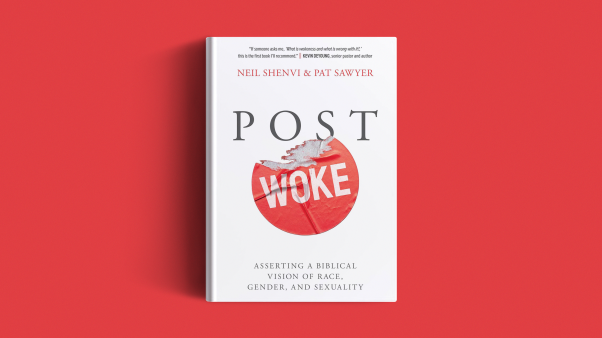“Lady Liberty” keeps her golden doors wide open for immigrants to the U.S. But our national relationship to race, immigration, and ethnicity continues to be a conundrum. Immigrants and refugees continue to pour in from every continent. Our so-called American “melting pot” is more like a salad bowl with thousands of new ingredients! The question is, How do we minister to and with these new neighbors?
Some argue that since we are an increasingly multicultural society, our churches should become more multicultural. There is a certain logic to that. As long as there are people who want to be culturally and socially multicultural, or multiethnic, there also must be structures for them. Such ministries are crucial for healing America’s racial and ethnic wounds. They potentially model the unbiased oneness that Jesus prayed for in John 17.
But despite what some advocates imply, multicultural ministry is not more biblical, let alone always most effective. I think our multicultural situation demands that we also employ what I call a monocultural approach.
I have been ministering with people of Asian descent for over three decades, and the variety of people groups coming to the U.S. is expanding exponentially. Today we see thousands of newly-arrived people groups that we never dreamed would be in the U.S.—Mongolians, Tibetans, Uyghurs, and Bangladeshis. From Laos, we have Hmong, Mien, Tai Dam, and Khmu groups. From persecution in Myanmar have come Karen, Mon, and Chin groups. Refugees from Bhutan, mostly Hindu, are presently being accepted into the U.S. at 15,000 per year for four years.
To ask that each of these groups assimilate to one another or to multiethnic congregations—at the same time they are trying to assimilate into U.S. culture—is unrealistic. And it’s not just new immigrants who have unique and particular needs that the gospel can address in culturally specific ways. Most often the 1.5, second, or third generation offspring desire high ethnic identity ministries.
All such outreach needs to be done with wisdom and particular cultural sensitivity. Pioneer workers setting up new works with these people groups must ask, How is the Good News to be communicated for each cultural group? How can the Good News flow to these families and their friends, and even back to families and friends in the country of birth?
This is not only a pragmatic model of ministry; it also has biblical precedent. Jesus preached, taught, and demonstrated the Good News contextually within Jewish culture. Then he said to his disciples, and to us, “As the Father sent me, so send I you.”
I believe our approach to ministry has to be in and through a given culture. If the Good News takes root properly, it can flow naturally to family and friends within that culture. If it doesn’t flow naturally through the culture, the Good News suddenly becomes the Bad News. It doesn’t go beyond one person.
Of course, there is an inherent danger with a monocultural approach: ethnocentrism. I know from my 30 years of experience how monocultural ministries can easily violate kingdom principles like justice, humility, and unity. Followers of Christ could wrongly apply monocultural thinking to condone new types of apartheid. Yet Jesus modeled for us a culturally focused ministry that never showed bias or favoritism, culturally, socially, or economically. He was both culturally bounded and sensitive, yet he always operated in a “kingdom-culture-mode.” This must be our approach, if we are sent as he was.
In our work, we have seen the amazing result of about 70 Japanese coming to know Christ personally in the last ten years because of a focused monocultural ministry. We have other ministries with Filipinos, Cambodians, Chinese, Vietnamese, and other Asian Americans. Our first priority always is to have them honor their God-given first birth, so we pray with them for their extended families. And some have traveled back to their country of origin to reach out to their extended families. This is such an organic and relevant mission endeavor, even for Americanized Asians. Secondly, they must be ready to share Christ with anyone else in their natural network. And finally, they must be willing and committed to love and share with their neighbors, whatever ethnic heritage they may have.
Neither multicultural nor monocultural ministry is the answer to our salad bowl society. Let us not idealize either, but only the kingdom of God. In Scripture we have examples of both monocultural ministry (Jesus) and multicultural ministry (some churches founded by Paul). Every person and every group has dignity and validity no matter their ethnic, social, political, or economic roots—and whether they gather mono or multi. And, in the end, every people group will be represented in heaven (Rev. 5:9–10).
Tom Steers is founder and co-director of Asian American Ministries for The Navigators. He is based in Southern California.
“Speaking Out” is Christianity Today‘s guest opinion column and (unlike an editorial) does not necessarily represent the opinion of the publication.
Copyright © 2010 Christianity Today. Click for reprint information.
Related Elsewhere:
Previous Christianity Today articles related to race and ethnicity include:
Are Evangelicals Doing a Good Job at Racial Integration? | Church leaders and observers weigh in on a current debate. (February 25, 2010)
Harder than Anyone Can Imagine | Four working pastors—Latino, Asian, black, and white—respond to the bracing thesis ofUnited by Faith. A CT forum with Noel Castellanos, Bill Hybels, Soong-Chan Rah, Frank Reid. (April 1, 2005)
7 Habits of Racially Mixed Churches | How to achieve ethnic diversity—and die (to self) trying. (August 1, 2004)








